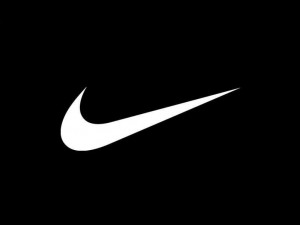November 27, 2011
1. Facts of Case
Thr oughout the 1990’s Nike was criticized for their alleged involvement of appalling labor practices around the world. Therefore, in 1998, Marc Kasky, a resident of California, sued Nike for unfair and deceptive practices under California’s Unfair Competition Law and False Advertising Law. This False Advertising law lets any citizen sue over allegedly false or misleading statements by a business. Kasky claimed that Nike had to make false statements or facts to keep or maintain their sales, regarding the working conditions of which the products are made. Nike’s Corporation appealed the complaint, stating that the respondent’s suit was prevented by the First Amendment. Kasky appealed, and the California Court of Appeal affirmed, holding that Nike’s statements “formed part of a public dialogue on a matter of public concern within the core area of expression protected by the First Amendment.” When the case was taken to the Supreme Court, they concluded that Nike was using “commercial speech,” which they could be punished for using misleading statements to the public so they would still want to buy their products. However, the Supreme Court refused to decide it.
oughout the 1990’s Nike was criticized for their alleged involvement of appalling labor practices around the world. Therefore, in 1998, Marc Kasky, a resident of California, sued Nike for unfair and deceptive practices under California’s Unfair Competition Law and False Advertising Law. This False Advertising law lets any citizen sue over allegedly false or misleading statements by a business. Kasky claimed that Nike had to make false statements or facts to keep or maintain their sales, regarding the working conditions of which the products are made. Nike’s Corporation appealed the complaint, stating that the respondent’s suit was prevented by the First Amendment. Kasky appealed, and the California Court of Appeal affirmed, holding that Nike’s statements “formed part of a public dialogue on a matter of public concern within the core area of expression protected by the First Amendment.” When the case was taken to the Supreme Court, they concluded that Nike was using “commercial speech,” which they could be punished for using misleading statements to the public so they would still want to buy their products. However, the Supreme Court refused to decide it.
2. Legal Issue
From FindLaw, it states that the court granted certiorari to decide two questions:
1. Whether a corporation participating in a public debate may “be subjected to liability for factual inaccuracies on the theory that its statements are ‘commercial speech’ because they might affect consumers’ opinions about the business as a good corporate citizen and thereby affect their purchasing decisions”
2. Even assuming the California Supreme Court properly characterized such statements as commercial speech, whether the “First Amendment, as applied to the states through the Fourteenth Amendment, permit[s] subjecting speakers to the legal regime approved by that court in the decision below.”
3. Decision
The trial court continued the objection from Nike without leave to amend and entered a judgment of dismissal. The Supreme Court reversed and remanded for additional measures. Lastly, the Supreme Court never entered a final judgment by postponing the decision in this case.
4. Analysis
One of the main issues in this case is trying to find the distinction between corporate and commercial speech. Because of Nike making allegedly false and misleading statements when reacting to criticisms of their labor practices, First Amendment protections can get a bit confusing. An honest mistake and statements that are true but are misleading are conditionally protected. For the First Amendment, the remedy for error is rebuttal, not litigation.
5. Questions to Consider
1. What is the significance of this case?
2. Do you think the False Advertising Law in California is constitutional?
3. What do you think the ruling should be in this case?